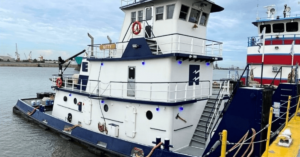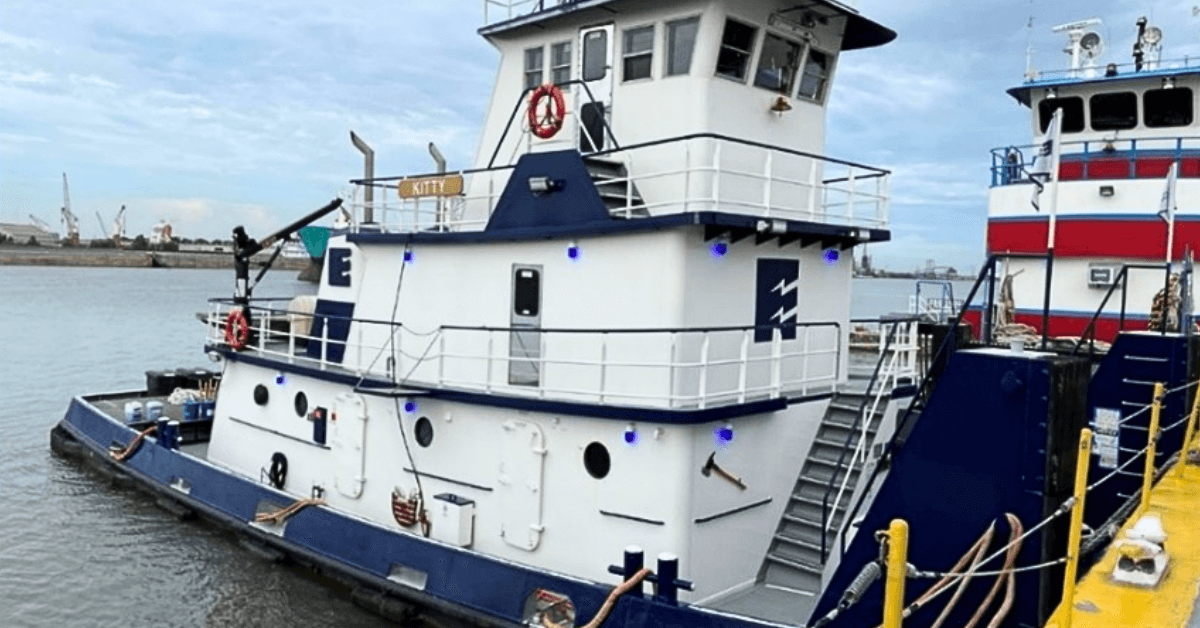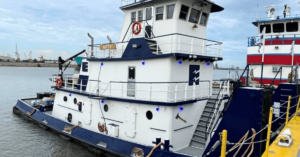
World’s 1st Fully Electric Offshore Vessel To Enter Operation In 2027
February 5, 2025
Video: Singapore Navy Unveils Autonomous Patrol Boats To Boost Maritime Security
February 5, 2025

A sudden water surge caused by the wakes of passing ships led to a barge striking a lock gate at Algiers Lock in New Orleans, resulting in an estimated $2 million in damage, according to a report released by the National Transportation Safety Board (NTSB).
The incident took place on July 4, 2023, when the 68-foot towing vessel Kitty was pushing two loaded tank barges into the Algiers Lock from the Mississippi River side. At the time, the river stage was at 1.7 feet, considered an “extremely low” water level.
A severe wake warning had been issued due to the increased risk of wave action in shallow areas, but there were no specific speed restrictions in place.
Shortly before the Kitty entered the lock, three deep-draft ships passed by on the Mississippi River between 5:52 p.m. and 6:02 p.m., travelling at speeds between 10 and 14 knots.
Just two minutes later, at 6:04 p.m., the tow suddenly surged forward inside the lock chamber. The Kitty’s master attempted to slow the movement by putting the engines to full reverse, but the force of the surge pushed the vessel and its barges ahead.
Two mooring lines broke under pressure, and the lead barge struck one of the lock gates. There were no injuries or pollution reported, but the damage to the lock gate was significant.
Following the incident, the Kitty’s crew reported seeing the water level rise by 3 to 6 feet while inside the lock. The NTSB analyzed video footage from the vessel and found that the minimum recorded change in water level was 3.4 feet.
The investigation found that the sudden surge was likely caused by the wakes of the three passing ships, which displaced water into and out of the Algiers Lock forebay.
Lock operators, who had previously observed smaller surges of up to a foot, stated they had never witnessed anything of this scale before.
Investigators suggested that the record-low water levels in the lock forebay may have intensified wake effects, creating a stronger-than-usual surge that pushed the towboat forward.
The NTSB report highlighted how water displacement from large vessel wakes can be more pronounced in confined waterways, such as lock chambers and shallow areas.
While river pilots maintained standard transit speeds, the findings suggest that these conditions may contribute to hazardous surges, especially during periods of low water.
The Algiers Lock, a crucial link between the Mississippi River and the inland waterway network, suffered major damage from the collision.
Reference: NTSB
Source: Maritime Shipping News


